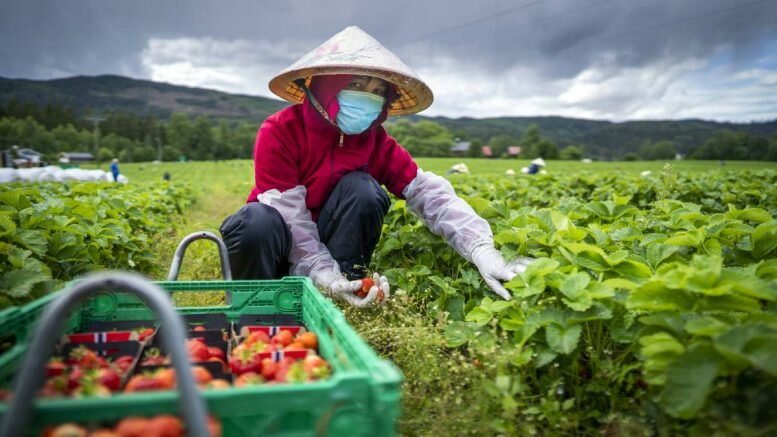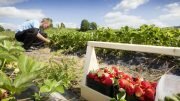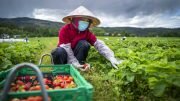Strawberry farmers and vegetable producers must be trained when it comes to pay and working conditions and must not shift employer responsibility onto intermediaries, the Farmers’ Association emphasizes.
The Norwegian Farmers’ Association and the government have agreed on a number of measures to overcome the many violations of the Working Environment Act to which seasonal workers are exposed.
In the last three years, the Norwegian Labor Inspection Authority has uncovered offenses in all inspections carried when it comes to seasonal agriculture in Eastern Norway.
This summer, several media reports emerged about poor working and living conditions for workers from abroad, who were brought to Norway to harvest berries and vegetables.
Lars Petter Bartnes of the Norwegian Farmers’ Association pointed out that the industry lives not only by producing food but also through its reputation.
“We recognize that it is a serious situation,” he said.
Better knowledge
Together with several other industry representatives, he was summoned to a meeting with Minister of Agriculture Olaug Bollestad (KrF) and State Secretary Vegard Einan (H) in the Ministry of Labor and Social Affairs.
“This is just a preliminary meeting. We want to follow this up over time,” Bollestad promises.
The government and the agricultural industry have agreed on several measures.
First on the list is an employer course that will improve knowledge of the regulations, including contracts, salaries, and working conditions.
The course will first be offered to berry producers, then to several farmers who depend on seasonal workers.
Bartnes requested that market players demand farmers to complete the course for them to be allowed to deliver goods.
The farmers’ team leader is critical of the fact that many farmers use intermediaries when they obtain labor from abroad.
“It’s unfortunate. The farmer is, by definition, an employer. It is not possible to write that off. It is a clear recommendation from the industry to ensure that the farmer is the employer,” Bartnes said.
Furthermore, the authorities will require that employees can receive wages electronically and not in cash.
Bartnes hopes that the measures will lead to less work-related crime in agriculture.
Seasonal workers
The government is also ready to crack down on those who don’t improve work conditions.
“Last year, four producers were ‘quarantined’ by the Norwegian Directorate of Immigration for two years due to breaches of the regulations. That means that they are not allowed to hire in employees this year or next year,” Einan said.
The ‘quarantine’ was due to offenses that were uncovered by the Norwegian Labor Inspection Authority.
Einan pointed out that dangerous living conditions are also something that is often detected by the local fire department, not the Norwegian Labor Inspection Authority.
Additionally, the government will also increase the penalty for so-called wage theft.
It recently sent a bill for consultation that would increase the penalty for aggravated theft of salary to five years in prison.
© NTB Scanpix / #Norway Today






Be the first to comment on "Norway wants to end work-related exploitation of seasonal workers in agriculture"